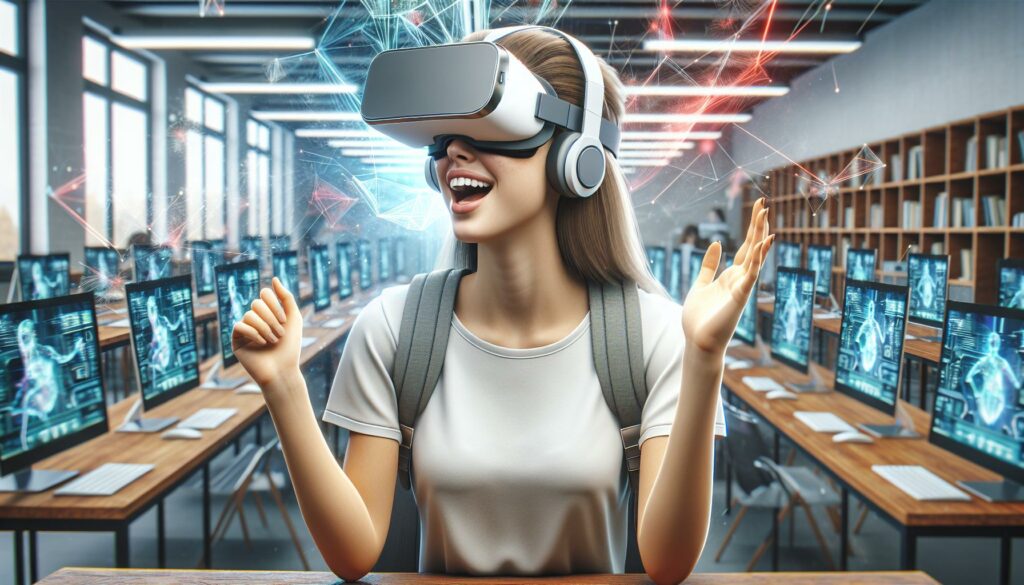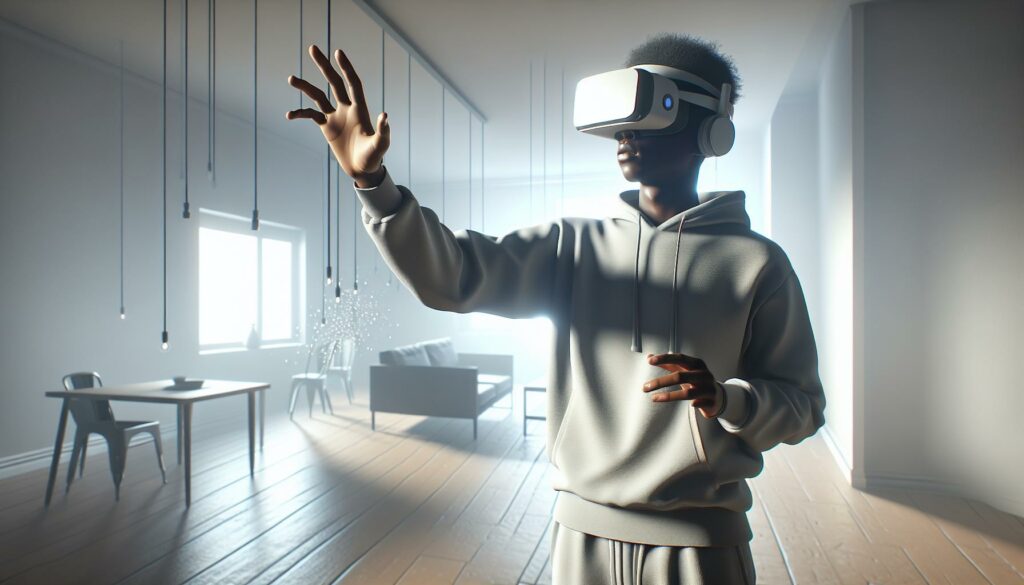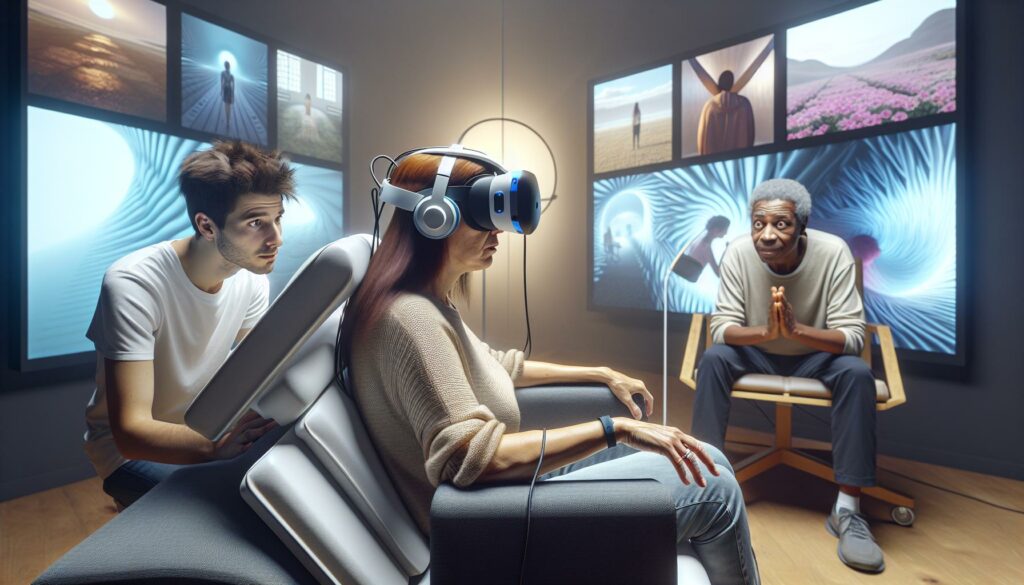Virtual reality isn’t just for gamers and tech enthusiasts anymore – it’s revolutionizing how we learn, work and play. As VR technology becomes more accessible, countless opportunities have emerged for people to dive into this exciting field.
From online courses and bootcamps to university programs and hands-on workshops, there’s no shortage of ways to master virtual reality development. Whether someone’s interested in creating immersive gaming experiences, developing educational applications, or building the next generation of VR solutions, they’ll find learning pathways tailored to their goals and skill level.
Where to Learn Virtual Reality
Virtual reality creates immersive digital environments where users interact with computer-generated surroundings through specialized headsets. VR technology combines motion tracking sensors gesture recognition cameras eye tracking devices to deliver responsive 3D experiences.
The VR industry spans multiple sectors:
- Healthcare: Medical training surgical simulations patient therapy
- Education: Interactive learning environments virtual field trips 3D modeling
- Architecture: Building visualization interior design structural planning
- Entertainment: Gaming immersive storytelling virtual concerts
- Manufacturing: Product design assembly training safety simulations
Learning VR development opens career opportunities in these growing fields:
| Industry Sector | Growth Rate (2021-2026) | Average Salary Range |
|---|---|---|
| Gaming | 32.8% | $70,000 – $140,000 |
| Healthcare VR | 30.7% | $85,000 – $160,000 |
| Enterprise VR | 41.3% | $90,000 – $180,000 |
The technical skills acquired through VR development include:
- 3D modeling using industry-standard software
- Programming in C# Unity or Unreal Engine
- User interface design for spatial computing
- Motion tracking sensor integration
- Cross-platform development optimization
Organizations actively seek VR developers for:
- Creating training simulations
- Developing educational applications
- Building virtual showrooms
- Designing interactive entertainment
- Producing virtual collaboration tools
Top Online Learning Platforms for VR Development
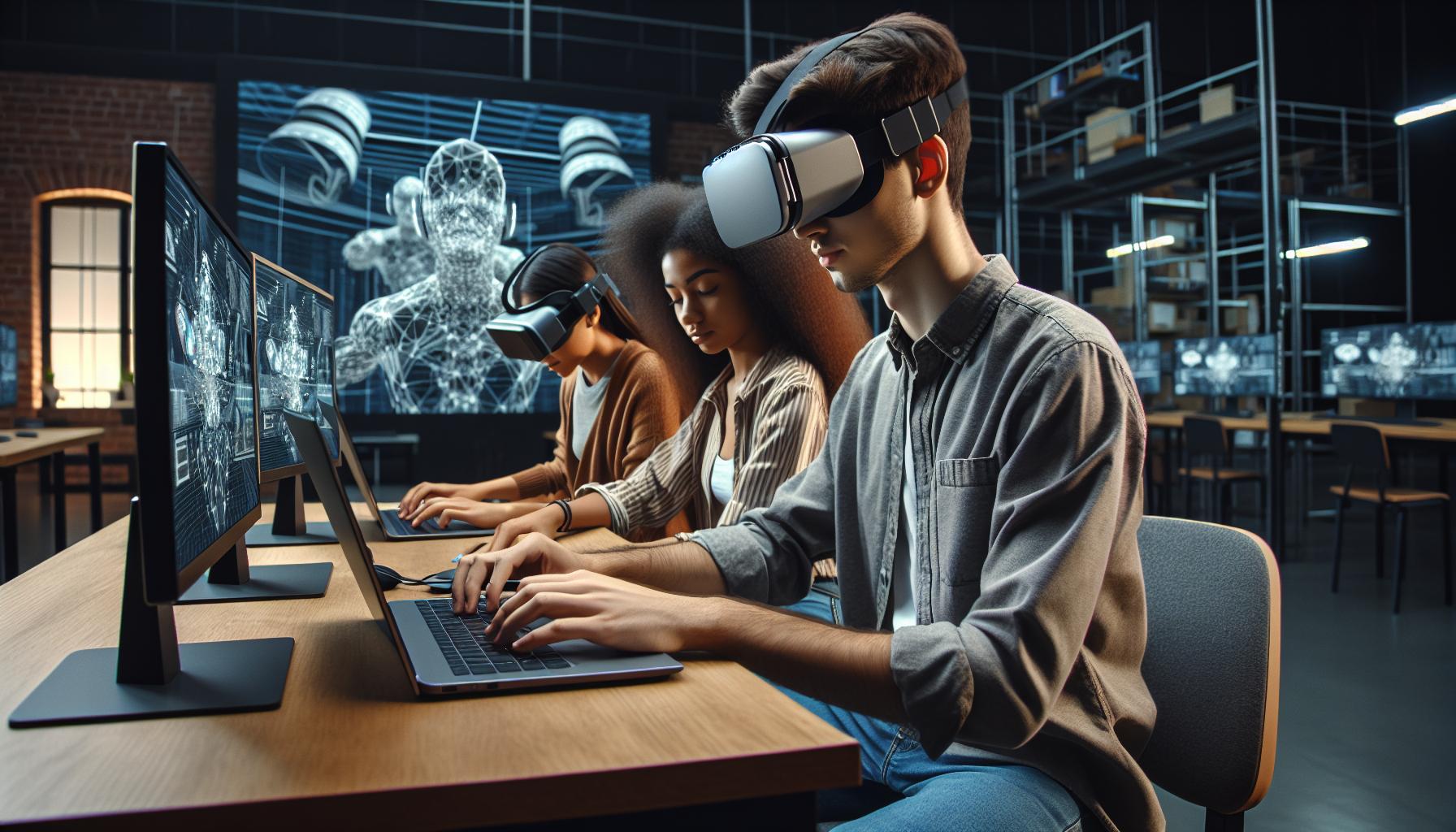
Online platforms offer comprehensive virtual reality development courses with flexible learning schedules and expert-led instruction. These platforms provide structured curricula combining theoretical knowledge with hands-on projects.
Udemy’s VR Development Courses
Udemy hosts over 200 VR development courses ranging from beginner to advanced levels. Popular courses include “Complete Virtual Reality Game Development with Unity” and “VR App Development with Unity & C#,” each offering 20+ hours of video content. Students gain access to downloadable project files, coding exercises, and lifetime course updates. Instructors provide real-time support through Q&A forums, while course completion certificates validate learned skills. The platform’s pay-per-course model enables learners to select specific topics like VR game mechanics, 3D modeling, or AR integration.
Coursera’s Virtual Reality Specializations
Coursera partners with leading universities to deliver structured VR specializations. The “Virtual Reality Specialization” by the University of London spans 5 courses over 6 months. Students master Unity development, 3D interaction design, and mobile VR app creation through weekly assignments. The platform’s peer-reviewed projects ensure practical skill development. Course materials include video lectures, graded assignments, and collaborative discussion forums. Learning paths incorporate industry-standard tools like Unity, Blender, and VR SDKs.
Unity Learn Premium Platform
Unity Learn Premium focuses exclusively on Unity engine-based VR development. The platform features 30+ hours of VR-specific tutorials, interactive coding exercises, and guided projects. Users access comprehensive learning paths covering VR fundamentals, spatial audio implementation, and performance optimization. Premium subscribers receive additional benefits including live Q&A sessions with Unity experts, certification preparation materials, and asset store vouchers. The platform updates content regularly to align with Unity’s latest VR features.
University Programs and Bootcamps

Academic institutions offer structured paths to virtual reality expertise through accredited degree programs and intensive bootcamps. These programs combine theoretical knowledge with hands-on experience for comprehensive VR education.
Full-Time VR Degree Programs
Leading universities provide specialized VR degree programs at undergraduate and graduate levels. Rochester Institute of Technology offers a BS in Gaming and Interactive Media with VR specialization tracks. University of Southern California features an MS in Computer Science with emphasis on Virtual Reality. Stanford University delivers a Graduate Certificate in VR through its Virtual Human Interaction Lab. These programs include courses in:
- 3D modeling software proficiency (Maya, Blender, 3ds Max)
- Programming languages (C#, C++, Python)
- Game engines (Unity, Unreal Engine)
- Human-computer interaction principles
- Spatial computing fundamentals
Intensive VR Bootcamp Options
Tech education providers deliver concentrated VR development training through accelerated bootcamps. Circuit Stream runs a 10-week XR Development with Unity program. VR Bootcamp by Academy Xi offers an 8-week immersive course focusing on:
- Rapid prototyping techniques
- VR interaction design
- Cross-platform development
- Industry-standard tools implementation
- Real-world project creation
- XR Terra: 15-week part-time AR/VR Developer program
- Digital Futures Academy: 12-week full-time VR Development Bootcamp
- Upload VR Academy: 8-week intensive Unity VR certification
Free Resources to Get Started
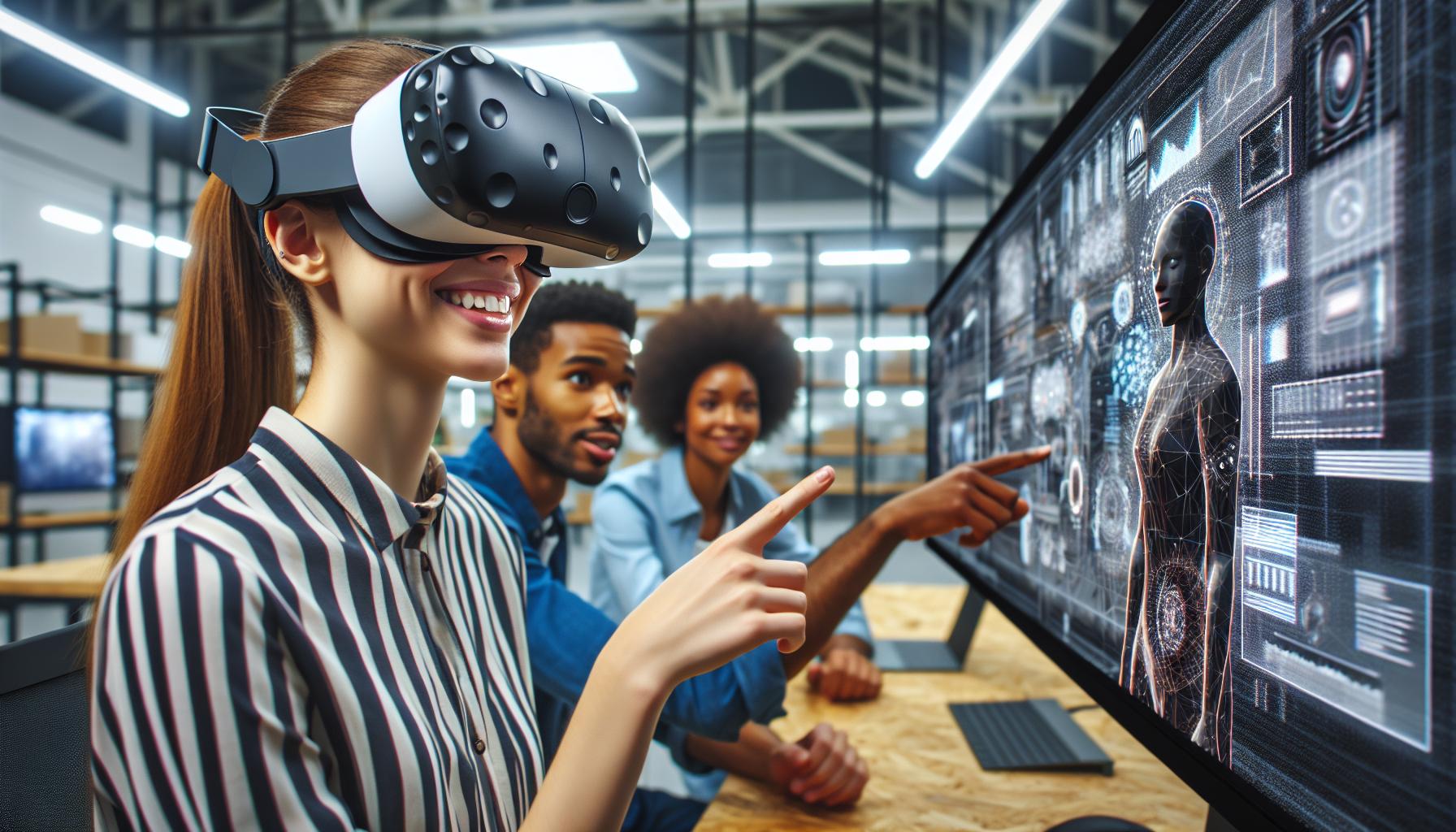
Starting a journey into virtual reality development doesn’t require a financial investment. Multiple free resources provide comprehensive learning materials for beginners to advanced developers.
YouTube Tutorials and Channels
VR development tutorials on YouTube offer step-by-step guidance through visual demonstrations. Valem’s channel features Unity VR development tutorials with practical projects ranging from basic controller interactions to advanced gameplay mechanics. Dilmer Valecillos focuses on Oculus Quest development using Unity, providing weekly content on VR optimization techniques. Virtual Reality Toolkit (VRTK) maintains an official channel with tutorials on implementing cross-platform VR features. Unity’s channel delivers regular content updates about VR development tools, best practices, and implementation strategies.
VR Developer Communities
Online communities connect VR developers worldwide through knowledge sharing platforms. Reddit’s r/virtualreality and r/vrdev host discussions on development challenges, industry trends, and troubleshooting solutions. Discord servers like VR Dev League and Virtual Reality facilitate real-time conversations with experienced developers. Stack Overflow’s VR development tag contains over 10,000 answered questions about Unity VR, Unreal Engine VR, and WebVR implementations. Unity Forums’ VR section features dedicated spaces for platform-specific development queries, asset recommendations, and performance optimization discussions.
Required Tools and Software
Virtual reality development requires specific hardware components and software tools to create immersive experiences. The following sections outline the essential equipment and programs needed to start developing VR applications.
VR Hardware Requirements
A VR-ready computer with a dedicated graphics card (NVIDIA GTX 1060 or better) forms the foundation for VR development. The system needs at least 16GB RAM, an Intel i5/AMD Ryzen 5 processor or higher, and 256GB SSD storage. A VR headset serves as the primary development and testing tool, with popular options including Meta Quest 2, Valve Index or HTC Vive. Additional equipment includes motion controllers for interaction testing and a development space measuring 6.5 x 6.5 feet minimum for room-scale VR experiences. External sensors or base stations enhance tracking accuracy for specific headset models.
- SteamVR SDK for hardware integration
- Oculus Integration package for Meta Quest development
- VRTK (Virtual Reality Toolkit) for rapid prototyping
- Adobe Creative Suite for texture creation and UI design
- Audacity or FMOD for audio implementation
What Is Virtual Reality and Why Learn It
Virtual reality’s growing influence across industries has created numerous pathways for learning and development. From online platforms like Udemy and Coursera to university programs and intensive bootcamps there’s a learning option for everyone interested in VR development.
The tools resources and communities available today make it easier than ever to start a career in virtual reality. Whether someone’s interested in gaming healthcare or enterprise applications the field offers promising opportunities with competitive salaries and strong growth potential.
With the right combination of technical skills determination and practical experience aspiring VR developers can turn their passion into a rewarding career. The future of virtual reality is bright and now’s the perfect time to dive into this transformative technology.

